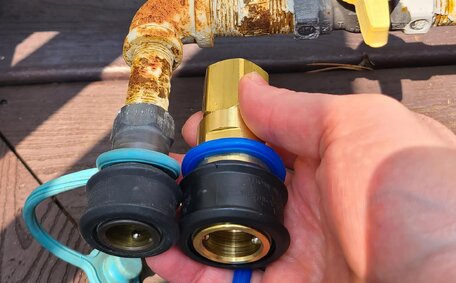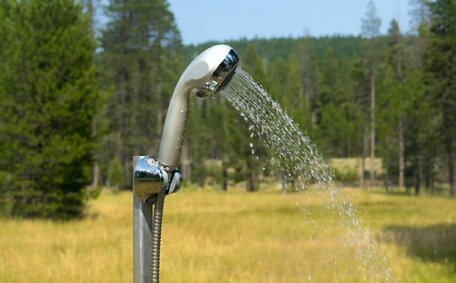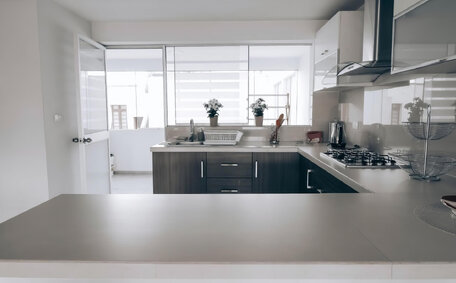Introduction to Maintaining Your Plumbing System
Keeping your home’s plumbing system in good working order should be a top priority. Regular maintenance and preventative care can help avoid minor issues from becoming major emergencies down the road.
Simple steps like checking pipes and fixtures for leaks, insulating exposed water lines, and pouring boiling water down drains monthly to remove buildup can pay off by preserving your plumbing and preventing water damage.
It’s smart to understand basic plumbing repairs you can tackle yourself like fixing a dripping faucet or unclogging a slow drain. It’s smart to understand basic plumbing repairs you can tackle yourself like fixing a dripping faucet or unclogging a slow drain.
They have the expertise to correctly diagnose issues and make comprehensive repairs.
Overall, keeping a watchful eye on your plumbing allows you to catch problems early before they worsen. Proper care preserves your home’s water supply, drainage, and appliances like hot water heaters. Maintaining your plumbing system saves money over the long run by avoiding costly emergency repairs. To learn more tips or schedule maintenance, you can email, call or book an appointment with Gladesville Plumbing today.
Regular Inspections to Prevent Problems
Making plumbing inspections part of your regular home maintenance routine is vital for identifying issues before they become emergencies. It’s wise to periodically check for leaks, corrosion, blockages, and damage throughout your plumbing system.
Look for drips or moisture around pipes, joints, valves and fixtures. Tighten any leaky connections, replace worn washers and keep an eye on problem areas.
Inspect for corrosion buildup which can degrade pipes. Check water pressure at taps to catch blockages early. Clear slow drains before they clog completely.
Also check the physical condition of exposed pipes and the water heater tank. Make sure nothing is damaged or showing signs of wear. Keep records of inspections so you can spot changes over time. Being proactive allows you to repair minor problems and avoid costly repairs down the road.
Clearing Clogs and Drains
Simple clogs in your drains or pipes can often be cleared with DIY methods before they become completely blocked. Using a plunger or drain snake monthly helps remove grime and debris that can build up over time.
Boiling water is another useful homemade drain cleaner. Pouring a pot of hot water down your sinks and shower drains helps dissolve soap scum, hair and other gunk. You can also use baking soda and vinegar - the fizzing reaction helps break up clogs.
For toilets, a plunger usually does the trick, but you can also try dropping in a tablet cleaner overnight to dissolve deposits. Just flush it down in the morning. For deeper clogs, you may need to remove the toilet and use a closet auger.
Repeatedly slow-running drains are a sign it’s time to thoroughly clean them out. While minor DIY methods may work, severe or recurring clogs often need a professional plumber’s expertise. They have the equipment and skills to fully clear blockages and inspect your drains.
Making Minor Repairs
Many common plumbing repairs like fixing a leaky faucet or toilet are simple enough for a DIY homeowner to tackle. With a few basic tools and safety precautions, you can take care of minor issues yourself.
Replacing old washers is one of the easiest repairs. Re-tighten the tap to stop leaks.
Dripping faucets are often due to worn washers not sealing properly. Turn off the water supply under the sink and replace the washer with the correct size.
For low water pressure at taps, mineral deposits, old fixtures and kinked pipes could be the issue.
Replacing fixtures like showerheads helps increase flow. Replacing fixtures like showerheads helps increase flow. Inspect all visible pipes for crimps.
Loose fittings are another common problem. Tighten any joints or connections that seep water. Loose fittings are another common problem.
Adjusting loose nuts under toilets stops leaks and rocking bowls.
While handy homeowners can perform basic repairs, understand your limits. Complex jobs like pipe replacements require professional expertise. But doing minor maintenance helps maximise your plumbing system.
Winterizing Pipes
Prep your home’s plumbing for winter by taking steps to prevent pipes from freezing and bursting. Insulate exposed pipes and outdoor faucets by wrapping them with special heat tape or foam covers. This protects vulnerable pipes from freezing temperatures.
Seal any cracks and holes where cold air could enter and reach plumbing. Look in unheated areas like crawl spaces, basements, garages and attics. Use caulk or expandable foam to plug gaps along floors, walls and ceilings.
Also make sure indoor faucets drip slightly during sub-freezing weather. Keeping water moving within pipes helps prevent freezing. Set indoor heat to a minimum of 55°F to keep pipes from getting too cold.
Shut off and drain any isolated exterior plumbing like irrigation systems, pool lines and garden hoses. Disconnect garden hoses from outdoor spigots. Consider installing frost-free spigots which self-drain with a valve below the frost line.
Take preventative action before winter so your plumbing survives the cold months intact. Proper insulation and sealing protects against burst pipes and costly water damage.
Knowing When to Call a Professional Plumber
While minor plumbing repairs are doable for DIY-ers, more complex issues require a professional plumber’s skills and expertise. Certain problems can quickly escalate into emergencies if improperly handled.
Any leak, blockage or damage that exceeds your skill level is a sign it’s time to call in a pro. For example, severe clogs in main sewer lines can’t be safely cleared with store-bought drain cleaners - a professional’s drain augers and high-pressure water jetting equipment are needed. Likewise, leaks originating underground or inside walls necessitate extensive repairs you can’t easily do.
Major appliance problems with water heaters, sump pumps, garbage disposals and more also often call for a professional diagnosis. Damages like burst pipes, sewer line backups and slab leaks can cause extensive property damage if not promptly and properly repaired. Putting off seemingly minor issues risks fines from city plumbing codes as problems worsen.
For any complex repairs or installs like re-piping and drain replacement, always hire licenced plumbers. They have the expertise to fully evaluate issues, safely make comprehensive repairs up to code, and prevent recurrence. Your home’s plumbing and safety should be entrusted to qualified professionals from reliable local businesses like Gladesville Plumbing.
Following Proper Safety Procedures
When tackling any DIY plumbing project, make sure to follow proper safety measures. Your personal safety should always be the top priority.
Turn off the main water supply valve before beginning any work. This prevents leaks or flooding if faucets or pipes are accidentally opened. Make sure everyone in the household knows where the shutoff valve is located.
Use caution when working with electricity and gas lines. Turn off circuit breakers or unplug appliances before repairs. If pipes contain gas, call the gas company for assistance in safely turning off and re-lighting gas supply.
Wear protective gear like gloves and eyewear when handling chemicals or cleaning drains.
Harsh products can cause burns or eye damage. Harsh products can cause burns or eye damage. Always use cleaners as directed.
Choose the right tools for the job and use them properly to avoid injury. Do not overexert if using force to loosen fittings - call a professional if something won’t budge easily. Proper technique prevents pipe and joint damage.
Know your limits and when to call a professional. Attempting extensive repairs beyond your skill level without proper knowledge can worsen issues and jeopardise safety. Hire a licenced plumber for any complex, hazardous or uncertain work.
Following basic safety practises keeps you, your family, home and belongings protected. Take your time, use caution, and put safety first with any DIY plumbing task.
Having the Right Tools on Hand
Having the proper tools on hand is crucial when tackling DIY plumbing repairs and maintenance. Investing in quality basic equipment makes jobs easier, safer, and ensures they are done right.
A few essentials include adjustable wrenches to grip and turn nuts and fittings, a basin wrench for the tight spaces under sinks, and a set of screwdrivers. Pipe wrenches like monkey wrenches provide extra gripping power when loosening stubborn connections.
For clearing clogs, a plunger and auger are must-haves. A hacksaw or pipe cutter tool cuts pipes neatly. Useful extras include a flashlight to see in dark spaces, work gloves to protect hands, and buckets to catch water drips.
Specialised tools like soldering torches help with pipe joining, compression tools attach push-fit fittings, and pipe threaders cut threads for threaded connections. A multimeter to test electrical circuits is crucial when working around water heaters and appliances.
Quality matters - cheap tools often split, crack or fail. Invest in solid stainless steel and avoid plastic. Keeping basic equipment on hand saves trips to the hardware store and allows you to tackle minor leaks, blockages, and repairs in your home plumbing system as soon as issues arise.
Implementing Preventative Maintenance
Consistently implementing preventative maintenance is crucial for keeping your plumbing system running smoothly. Start by making a plumbing inspection and maintenance checklist. Include tasks like checking pipes and fixtures for leaks monthly, pouring boiling water down sinks and drains weekly to clear grime, and insulating any exposed outdoor pipes before winter.
Also schedule professional preventative maintenance appointments with a licenced plumber annually. They will thoroughly inspect your complete system, clear any hidden clogs, and make repairs. Catching problems early avoids plumbing emergencies down the road.
Keep records of all inspections, repairs and replacements. This allows you to spot changes and recurring issues.
Immediately fix any leaks found, as drips can lead to water damage, mould growth and rot if left unchecked. Follow all safety procedures and hire professionals for major repairs to avoid fines and ensure your plumbing stays in good working order.
Making plumbing care a habit preserves your fixtures, conserves water, prevents damage, and saves on utility bills. Keep your home safe by making preventative maintenance a regular priority.






